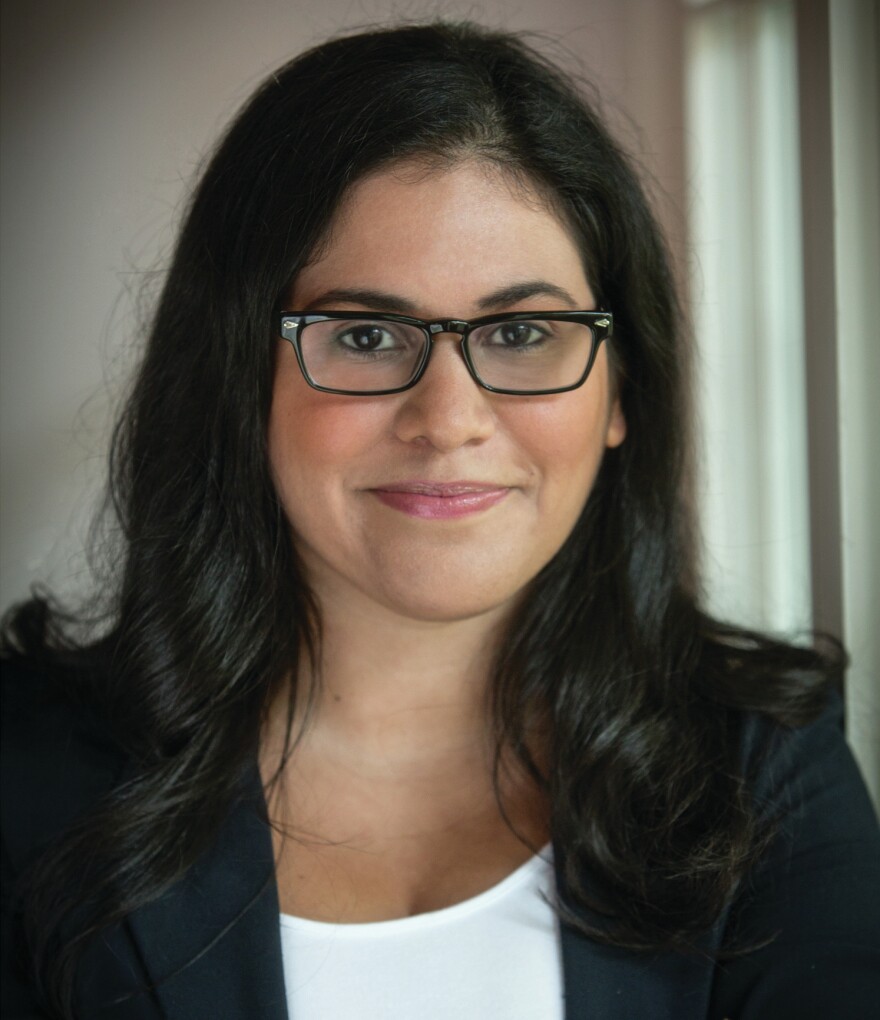How far would you go for love? In Sara Farizan's debut novel, a studious 17-year-old girl named Sahar finds herself deeply, head-over-heels in love with her childhood best friend and neighbor — another teenage girl named Nasrin.
Their story takes place in Iran, where homosexuality is illegal, making their love that much more forbidden. When Nasrin is engaged to be married to a man, Sahar is crushed. In order to openly be with Nasrin, Sahar considers gender-reassignment surgery, which is more accepted in Iran than homosexuality.
Iranian-American author Farizan, herself a lesbian, raises complicated questions about identity and acceptance in If You Could Be Mine. She speaks with NPR's Jacki Lyden about why she decided to write this story as a novel for young adults.
Interview Highlights
On cultural pride and being gay
"I was taught by my parents to be very proud of my heritage and my cultural background, and so I was always very vocal and outspoken about who I was culturally. I was proud to be Iranian, I was proud to be American. And so that was never a problem."
"The problem for me was that I realized from a very young age that I was gay, or at least had same-sex attractions that weren't going away. And I really struggled with that, and I was very closeted for about six or seven years, where I was just outside very bubbly and happy, and inside was very angry and sad and didn't feel like I could talk to anyone, based on where my parents were from. ... It's a very taboo subject in the Persian community, at least in the West, anyway."
On Sahar's consideration of gender reassignment

"I think the longer people read it, they'll see that there's a great distinction between gender identity and sexual orientation. I think Sahar realizes that, too ... through meeting other transsexual characters — some who are very confident and very happy and are actually trans, and then some who have kind of undergone the gender reassignment because they feel like it's their only option. So it brings up a lot of questions, the book, but I don't think it gives a lot of definite answers. But she really just sees it as a way to stop her girlfriend from leaving."
On deciding against using a pen name
"I think we decided that visibility's so important. ... Really the whole point of my writing was — it was helpful for me in a way. ... But also if it could help, you know, like one family or one parent or one kid who's perhaps going through a similar thing. And not necessarily in Iran, but you are in a family where you're of a different cultural background, and it's a taboo subject, and maybe it opens up people's hearts and minds a little bit to people who are not like them."
On writing for young adults
"I think it's a really strange, bizarre age that almost everyone really vividly remembers in a lot of ways — the good and the bad. And it is an issue that is happening to a lot of teenagers now. And I understand if parents don't want to get the book, and they're like, 'I don't know how I feel about that,' and I totally get that. But I don't ever want to condescend to a teenage audience. ... "
"I'm just very fascinated with teenage voices and the kind of wonder and fear and all the different, conflicting feelings that go along with that age."
Copyright 2023 NPR. To see more, visit https://www.npr.org.



